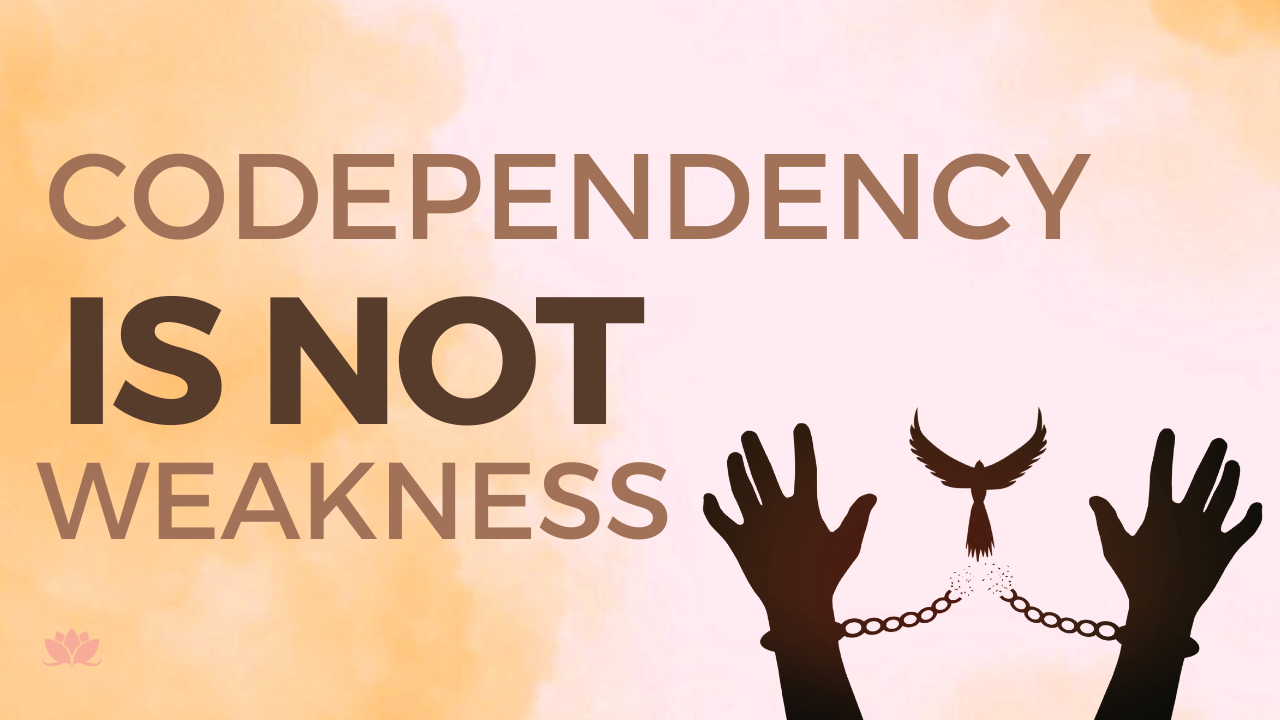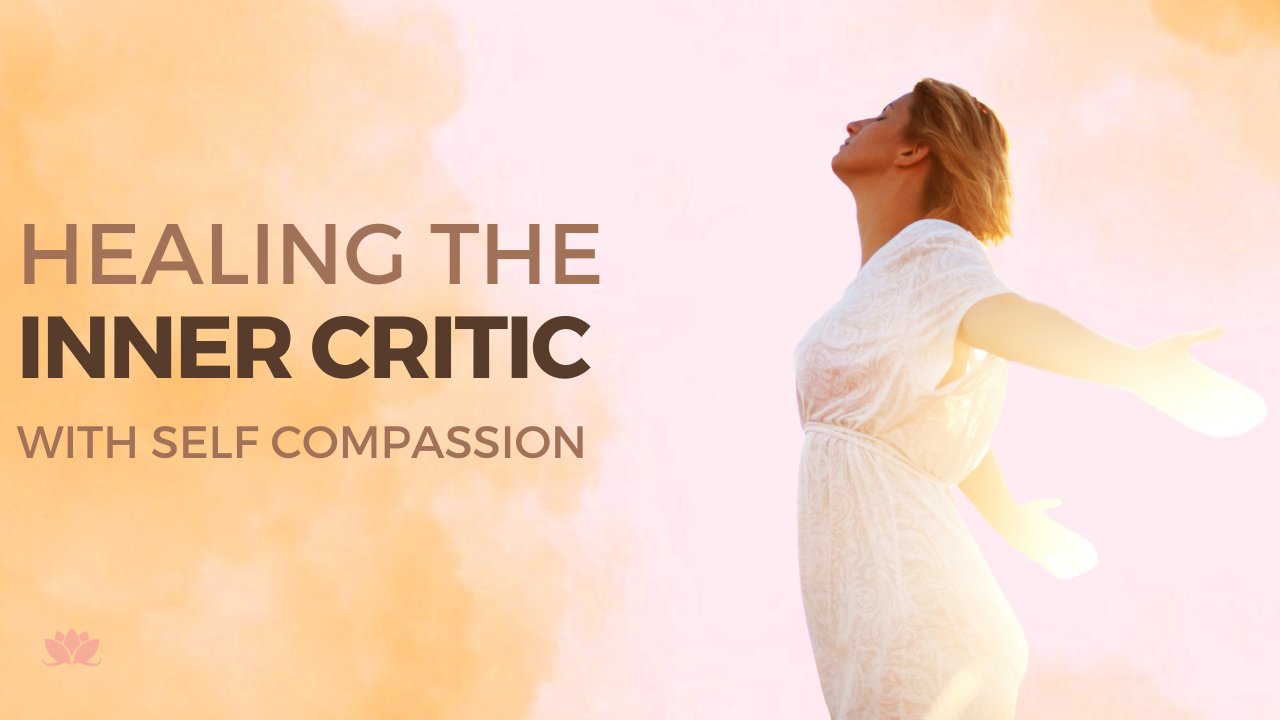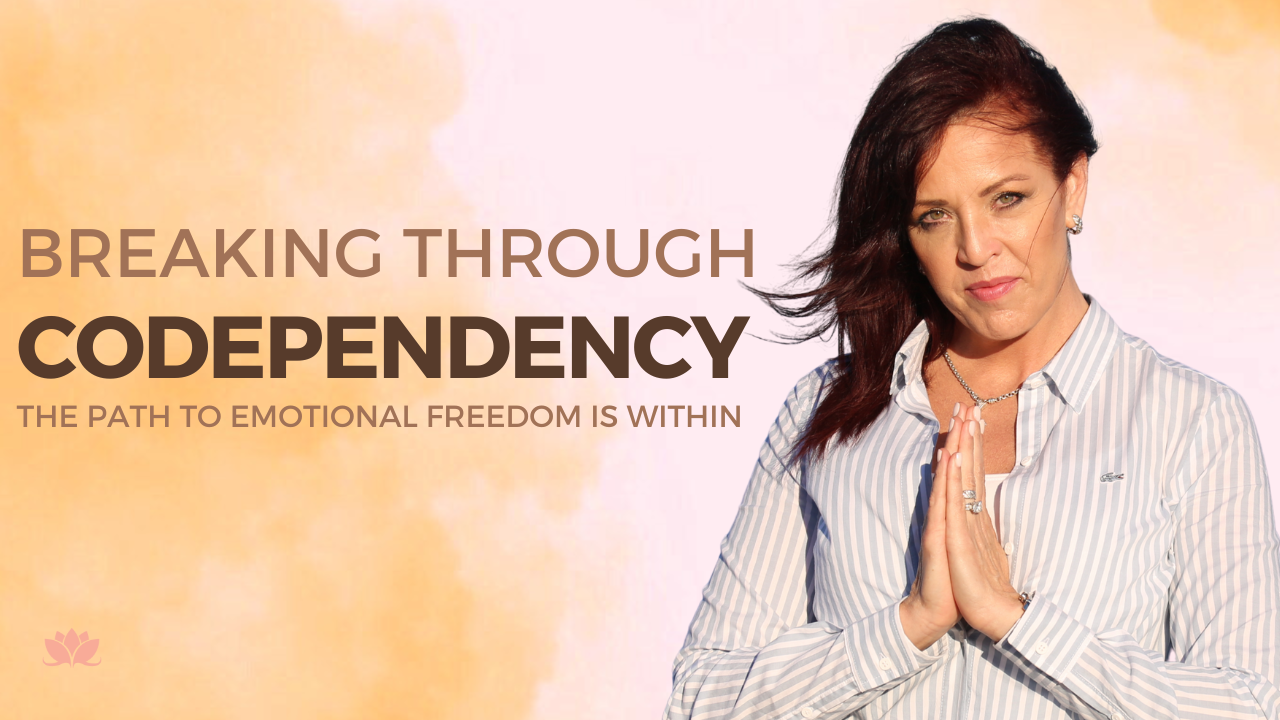Authenticity Cures Codependency
Codependency is rooted in suppressing childhood trauma, caused by the need to deny the self for the sake of pleasing parents. Through authenticity, one can learn how to heal from codependency. https://www.lisaaromano.com/12wbcp


Learning how to heal from codependency is akin to learning how to walk beside a hungry saber-tooth tiger. Codependency is rooted in suppressed childhood trauma and is the physical manifestation of the mindset of a wounded inner child that grew up feeling unloved, unwanted, unprotected, and uncared for. What matters most is the perception of a child, as the mind of a child assumes that what it experiences emotionally is a fact. Feeling uncared for, to the mind of a child implies they are unlovable, which results in shame, and feeling not good enough and often is the motivating factor for why emotionally neglected children develop codependency.
The path to healing from codependency demands we stop running from unwanted emotions. It requires a willingness to walk through the fire our inner child has fought so long to suppress, deny and pretend does not exist.
Codependency recovery is the path to emotional freedom, self-mastery, and enlightenment, but the price is high, for the one seeking to live an authentic life. However, the prize is greater than any price paid, in this healing author's opinion.
Last week, I had the pleasure of coaching a young man who was well aware of his childhood trauma, attachment issues, and codependency. His girlfriend asked him to reach out to me. She recently graduated from The 12 Week Breakthrough Codependency Coaching Program and believed that her new boyfriend was struggling with tortured unwanted feelings.
It is with his permission, I write this email explaining what he called a significant breakthrough in his emotional recovery journey.
For all of this young man's life, he has kept family secrets. His family has a long history of alcoholism, although, from the outside, the sports cars, large homes, and the many diplomas that hung on the wall of the family's library would tell a different story. He himself suffered greatly as a result of his unpredictable childhood home that was either erupting into chaotic arguments or marked by periods of eery silence when his parents refused to acknowledge one another. But of course, to friends and acquaintances, his family appeared to have it all.
Like many adult children, this young man made a conscious choice to ensure he was nothing like his father, who was a narcissistic alcoholic. He chose not to drink, and made every effort to be what he considered a 'good man'. Unaware of just how wounded his inner child was, he focused on the external realities of his life, including how he appeared in public, and how he treated others.
First Breakthrough
As he spoke of his family's facade, I helped him to connect an invisible dot. In all of his efforts to try to be unlike his father, he too focused on appearing perfect despite his authentic truth, which was rooted in masking suffering.
While focusing on his career, making money, buying a home, refusing to consume alcohol, and ensuring his outer world appeared normal, internally there was a raging war full of conflict he had yet to consciously acknowledge. It was in these sacred moments, that this young man's mind began to awaken from its slumber.
Second Breakthrough
When I asked him if he was enjoying his career, he admitted that he hated working in finance and found it to be a cut-throat industry. When I asked him what career would better suit him, he said he always wanted to work in basketball, as a coach or perhaps or athletic trainer. Anything related to basketball seemed to be what brought him joy.
Then I asked him if he ever heard his father discuss whether or not he enjoyed being a lawyer. As it turns out, my client recalled hearing his father argue with his grandfather regarding the pressure put on him to become a lawyer for the sake of making the family proud. My client's father had dreams of working with animals and had even donated time as a volunteer to rescue animals after a storm as a teenager. When his dad spoke of working with animals, his grandfather beat him with a stick and told him to get that 'stupid' idea out of his head.
As my client's mind became willing to explore unexplored emotions and thoughts, he connected another invisible dot when he understood that he and his father had both, for different reasons, abandoned their authentic selves, for some external ideal.
Third Breakthrough
At one point, my client started to weep as he began to understand that he and his father were both suppressing both joy and rage and that the battle within them was what pushed one to become narcissistic and the other to develop codependency.
At some time, his father decided that being authentic was too great a price and that there was too much pain associated with following his authentic path. Rather than internalize this trauma, his father externalized his conflict and took his pain out on others, through verbal and emotional abuse. To numb the suffering of his internal conflicts, my client's father turned to alcohol just as his grandfather had done, and kept generational trauma alive.
On the other hand, my client internalized his pain, developed anxiety, battled depression, and was now a full-blown codependent, who was addicted to the validation, and approval of others, particularly women. He did not know how to process the rage he had for his father and the mother who failed to protect him from his father's wrath. He could not identify his emotions, or express them. Instead, he focused completely on what he thought others expected of them and set out to meet those imagined, presumed, expectations, completely unaware of the suppressed conflicts responsible for his inability to be fully present in an authentic way for his girlfriend.
Breakthrough Number Four
He remembers being as young as seven years old and telling himself, "I will never yell like my daddy. I will never make my mommy feel bad. I will never be like him. Daddy is bad."
Together, we processed the implications of such early beliefs and the psychological anchors they had become that had arrested his ability to process any negative emotions, especially anger. He admitted that rather than hold a woman accountable for being an hour late for dinner, he'd pretend he wasn't angry. He also told me of a time when a neighbor parked in his driveway and left for the day, making it impossible for him to get to his office. When I asked him how he responded, he said he acted as if nothing happened. He never confronted the neighbor, and although his emotions stewed anytime he saw the neighbor, he set no boundary.
Authenticity Cures Codependency
Today, my client is on the path to healing because he is willing to stop running from unwanted feelings. He is learning to embrace what his inner child falsely believed he needed to hide from or be ashamed of. He is recognizing that his blocked emotions were causing an accumulation of psychological distress, and that codependency was just one of the avenues he had relied on to mask his suffering.
It is with great pleasure that I announce that he and his girlfriend are making great strides. They have committed to radical authenticity and compassion for the self and for one another. They are willing to be present with one another, and to hold a sacred space for the allowing of the surfacing of unwanted feelings.
He now knows he was escaping nothing and that the only way to heal from codependency, is through authenticity, which means he needs to stop running from unwanted feelings.
He has committed to being in the battle rather than running from it, which means he has committed to learning how to feel his feelings, one feeling at a time.
Dear One, may you know it is not your fault if you run from unwanted feelings. That is exactly what the human brain was designed to do. However, may you also learn to appreciate the devastating health problems, as well as mental health issues that arise from living disconnected from our authentic selves and from suppressed suffering.
Only when we give ourselves permission to admit we have been wounded, we carry wounds, and our hearts have been broken, can we get our bodies back into a natural energetic rhythm, that allows for the healthy flow of energy. When we suppress unwanted emotions, we stress our nervous system, block our spiritual growth, and experience disordered thinking that impacts our relationship with the self and others in unhealthy ways.
The good news is, with a willing intention, and a commitment to living an authentic life, we can heal from the trauma that has kept us stuck for so long.
All my love,
Your sister on the path to finding the true self, emotional freedom, and self-mastery,
Lisa A. Romano



